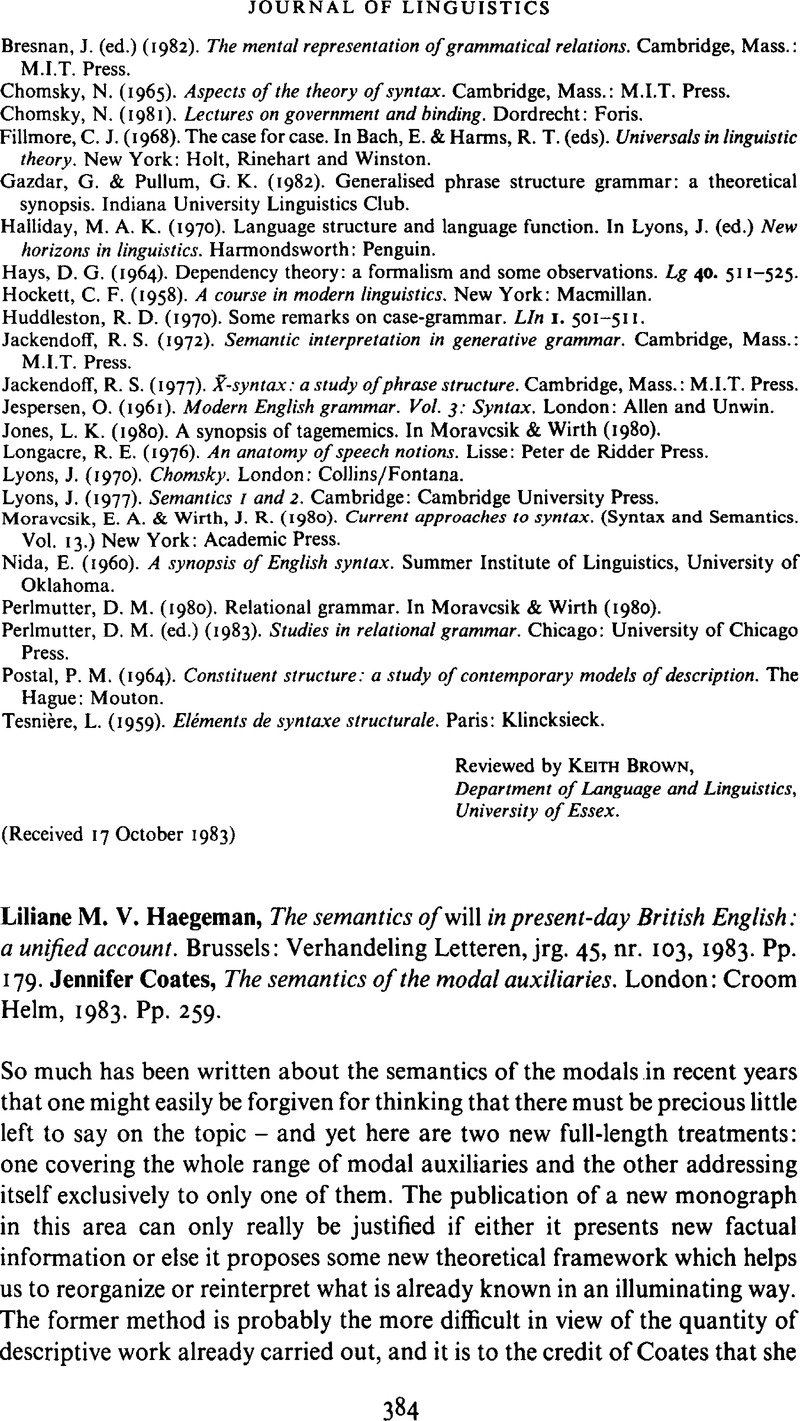Crossref Citations
This article has been cited by the following publications. This list is generated based on data provided by Crossref.
Nemickienė, Živilė
2019.
Means of Expression of Epistemic Modality in Russian Political Discourse.
Respectus Philologicus,
p.
19.
ÖZBAY, Ali Şükrü
and
GÜRSOY, Zehra
2023.
Computerized corpus as a tool for educational technology and learning in the analysis of four-word recurrent expressions.
Journal of Educational Technology and Online Learning,
Vol. 6,
Issue. 1,
p.
249.





